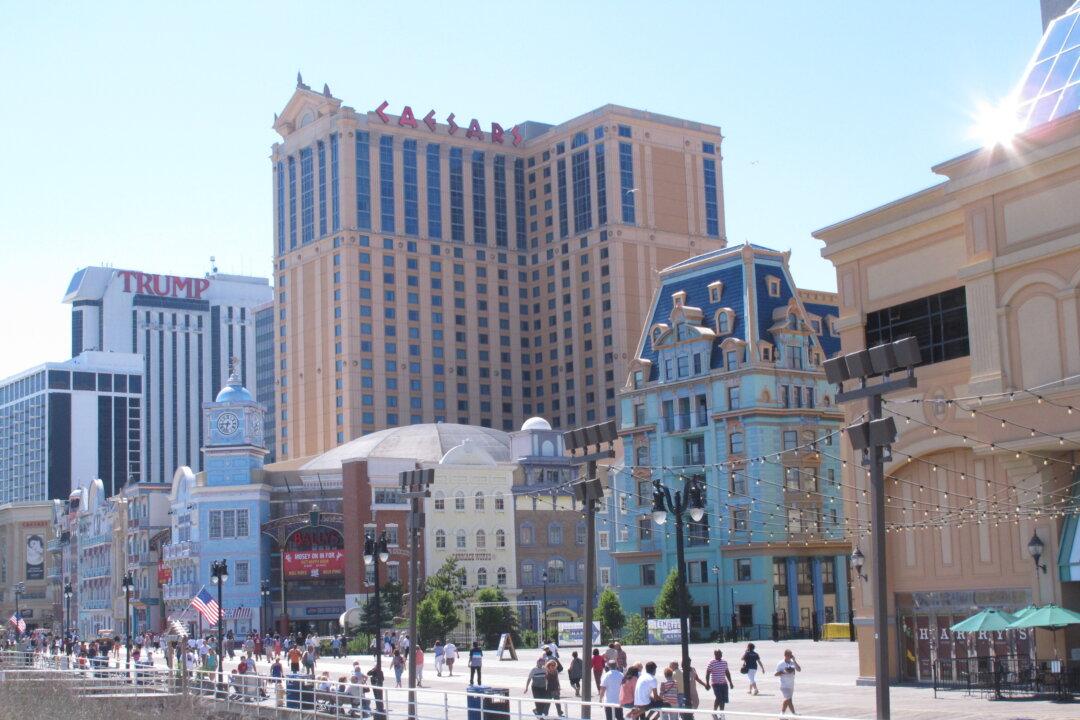ATLANTIC CITY, N.J.—New Jersey lawmakers are taking steps to attract small new casinos to Atlantic City and increase home ownership there as the city reels from a financial crisis partly brought on by the closings of large casino resorts this year.
A state Senate committee approved a bill Thursday that would water down the requirements of a 2011 law designed to attract developers willing to build new, smaller, and less costly casinos with as few as 200 hotel rooms. The law authorizes up to two projects.
The bill, which now goes to the full Senate for consideration, would remove a requirement that one of the two projects eventually expand to 500 rooms. It also would eliminate a requirement that the projects be new construction, allowing them to locate in existing buildings.
“The original requirements for casino licensing were set in a very different time and place,” said Sen. Joseph Kyrillos, a Monmouth County Republican who co-sponsored the bill with Senate President Steven Sweeney. “There seems now to be an artificial constraint that a casino be associated with a hotel of a certain size.”
Four of Atlantic City’s 12 large casinos have closed this year, and a fifth, Trump Taj Mahal, is scheduled to join them on Dec. 20. So far, 8,000 casino workers have lost their jobs.
Three lawmakers also introduced a bill to help address Atlantic City’s financial crisis brought on partly by successful tax appeals from the casinos as the city’s gambling market contracts. State Sens. Jim Whelan and Robert Singer and Assemblyman Vince Mazzeo proposed the legislation, which creates the Atlantic City Growth Tax Credit Program.
The bill is designed to more evenly divide the property tax burden. It would encourage construction of new owner-occupied homes in Atlantic City, where three-quarters of the residents are renters.
“A city with three-quarters of its residents as renters is unsustainable,” said Whelan, a former Atlantic City mayor. “We need to incentivize both developers to build residential projects in Atlantic City and consumers to purchase these units. Only then can we grow both Atlantic City’s economy and its population.”
Program Benefits
The program would offer developers who build new, owner-occupied residential projects a tax credit for construction costs, including demolition, capital improvements, and land acquisition. People who buy these units would then be eligible for low-interest mortgages through the New Jersey Housing and Mortgage Finance Agency.
The boutique casino plan was seen as a way to entice developers into the market at a much lower price than the $1.5 billion to $2 billion the city’s higher-end casinos cost to build. Revel, which closed in September after less than two years, cost $2.4 billion and never turned a profit. The most successful of the city’s 11 casinos have 2,000 rooms or more.
No one has built one of the new smaller casinos since Gov. Chris Christie signed the original legislation in January 2011. Florida’s Seminole Indians, through their Hard Rock International franchise, proposed one but pulled out soon afterward.
From The Associated Press





